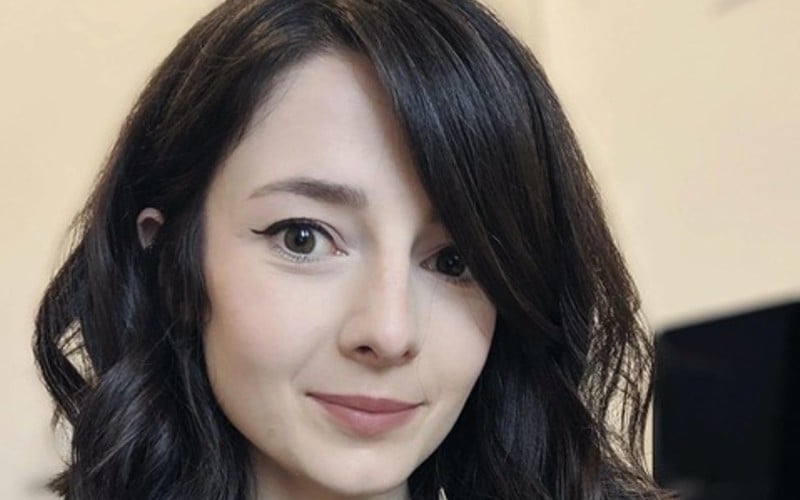To celebrate International Women in Engineering Day, which takes place on June 23, BusinessCloud and TechBlast will this week be profiling three women about their journey into tech.
Figures from 2021 show that only 16.5% of engineers are women. According to the Manchester Digital Skills Audit 2022, 95% of businesses said that diversity was important to them but only 58% of them were actively doing something to address it.
Manchester Digital has been running its Digital Her programme since 2019, which organises events and sessions for young women at schools and colleges across Greater Manchester to inspire them into a career in tech.
If Carrie Haworth had followed her school careers she would have worked in a prison but instead she’s working as a senior UX designer at Manchester-based On the Beach.
Here’s Carrie’s story into tech.
Q1: Can you tell us your journey into tech?
My first job out of university was as a digital designer in a marketing agency – which actually meant doing about five job roles in one! I ended up learning to code as part of this job and realised that I enjoyed the web design and development side of it. I found a new job just focusing on these areas in a design agency, and then started to learn about UX design a couple of years into this job. I knew that I needed to switch things up a little and I began looking for UX design jobs – hoping that someone would see potential in me and give me a chance to change my career direction, luckily On the Beach did.
Q2: What was it that made you consider a career in tech?
It was never much of a consideration, to be honest, it happened organically. I always enjoyed spending as much time as possible on the computer as a teenager. I loved learning how to use Photoshop and little bits of HTML to make my MySpace profile look ‘cool’. I was always good at ICT and media studies in school, and so I focused the choices I made around being creative and technical to some extent.
Q3: Were you encouraged into tech, science or digital while you were at school?
We had to do ICT as a BTEC GCSE, which was absolutely fine with me, as I probably would have taken it anyway. But other than that, I don’t feel we were encouraged to do any tech/science/digital subjects. I just chose what I felt I’d enjoy.
Q4: What subjects did you study at school and university?
GCSE: media studies, drama, history – and we had to do ICT too.
Sixth form: Media studies, theatre studies, psychology
College: Art and design foundation diploma
Uni: Design for digital media
Q5: Did you find the transfer into the tech job easy?
In each job I’ve had since university, I’ve always had a lot to learn – but each time I’ve looked for a new job it’s been because I felt I needed to move in order to learn and grow in my career.
I think my move from being a web designer and developer in small agencies into a big in-house tech team as a UX designer was the biggest change. I had transferable skills in terms of the design software I used, and I could communicate with engineers well as I had a web development background. But there was a lot of new lingo to learn, I’d never worked agile, I’d never worked in product teams, or with the majority of the roles that existed.
‘Women are killing it in FinTech – when they are given the opportunity’
It was really overwhelming, but I was pleasantly surprised at how welcoming everyone was, and how willing they were to share their knowledge with me. There was absolutely no judgement from people if I didn’t know something – they were more than happy to help me learn. Even 2.5 years on, I feel much more comfortable and knowledgeable, and I happily share that knowledge with anyone – but there’s still SO much that I don’t know. Being comfortable with not knowing is definitely a key skill I’ve had to learn – and with that comes being comfortable with telling people that you don’t know. Being open and honest, and asking for help is so important.
Q6: What do you most enjoy about your tech job now?
I did worry that moving to an in-house team for one company would get boring, as you’re only working on one company rather than multiple, like you do in agencies. But I actually really enjoy knowing this one company so well. I enjoy getting to know all the ins and outs of how the business works, the constant learning that research provides about our customers, and how everything is always changing and growing in tech – it’s certainly not been boring. There is always a never-ending list of problems to solve and improvements to make for our users – you’re always learning and innovating.
Q7: What does it mean to you to encourage young women into the tech industry?
I really hope to help young women see that you don’t have to be super techy to work in this industry, that it’s fun and exciting and there are so many different roles. Working in tech doesn’t necessarily mean coding – which I think is what most people assume you have to do.
When I was in school and college I didn’t have an idea of what careers and opportunities were out there, no one told us. I remember once going to a career guidance person in school, answering a few questions, having to help them use their computer, and coming away with no further clarity about what I should be focusing my studies on. Another quiz we did before choosing our GCSEs told me that I should work in a prison! I don’t feel we had the help or support to make such important choices at such a young age.
I think it’s super important for businesses to reach out to schools, colleges and universities and show them what’s out there. It’s up to us to help educate and inspire them – to tell them the things that we didn’t know at their age so that they can be more informed to make decisions about their education and careers. They’re our future workforce, the earlier they know about these careers, the better.


